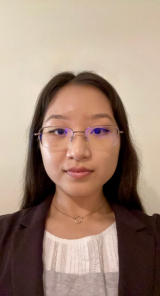Cdk5 Inhibition Leads to Enhanced Immune Sensitivity of Medulloblastoma via Changes in the Epigenetic Landscape

Mentor: Alex Huang
Collectively, pediatric brain tumor constitutes the second most prevalent childhood cancers and poses most lethal threat. Conventional therapies for medulloblastoma, a common malignant brain tumor of childhood with propensity for metastasis, utilize a combination of chemotherapy, radiation and surgery, which frequently causes unacceptable side effects in children whose brain undergoes rapid development. Immune-modulating therapy is an attractive alternative option. To evade immune surveillance, tumors adopt peripheral tissue tolerance mechanisms including the expression of programmed cell death-ligand 1 (PD-L1). Emerging data support a critical role of PD-L1/PD-1 signaling in tumor immunity, with ~15-50% of therapy-refractory cancers responding to checkpoint blockade. The mentor’s laboratory has previously reported that Cyclin-dependent Kinase 5 (Cdk5) has a surprising role in regulating medulloblastoma’s PD-L1 in response to interferon-gamma (IFN) in a murine MB model derived from Ptch+/-/p53-/- mice (Dorand et al. Science 2016; 353:399-403). More recently, the Huang lab have gathered preliminary data showing that in vivo exposure of MM1 to Cdk5 inhibitor, CYC065, exhibited slower growth, and ex vivo cultured MM1 tumors following in vivo CYC065 exposure maintained prolonged suppression of PD-L1 expression upon exposure to IFN in vitro even in the absence of the inhibitor. Additionally, other immune response genes, including MHC-I, MHC-II and CIITA, were also upregulated in cultured MM1 cells following in vivo CYC065 exposure. These data suggest that CYC065 treatment fundamentally changed the epigenetic landscape of the drug-exposed MM1 tumor that is long-lasting and propagated to subsequent generations of tumors in vitro. The summer fellow’s project is to further investigate the degree and magnitude of immune-related gene expression changes in MM1 cells following exposure to CYC065. The summer fellow will work closely with senior MD-PhD Student, Muta Abiff, Senior Research Scientists, Dr. Suzanne Tomchuck and Dr. Sung-Hee Choi in Dr. Huang’s lab. She will learn to analyze RNAseq data using online and custom bioinformatic analytic platforms, Western blotting and PCR techniques for validation and confirmation of affected genes, as well as florescent microscopy, flow cytometry and other related techniques. The summer fellow hopes to provide additional molecular insights into this novel observation with the hope of enabling a future clinical trial that would benefit pediatric and AYA brain tumor patients.

